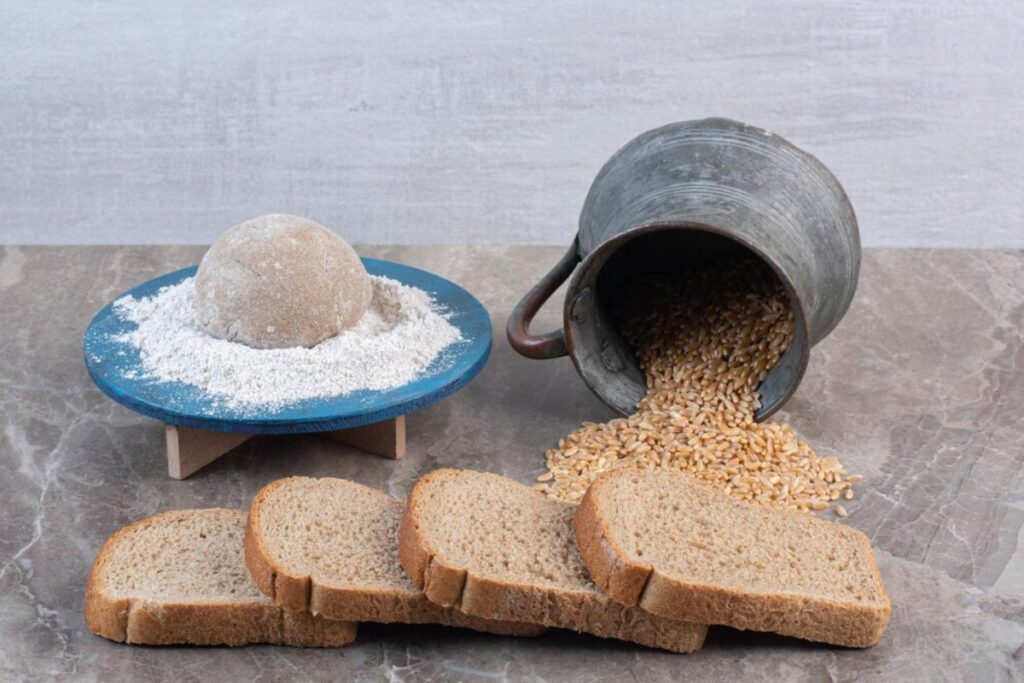The Health & Wellness Blog

Gluten and Inflammation: What’s the Connection?
Gluten is a term that invites a lot of opinions. Others see it as a dangerous protein lurking in bread and pasta. To others, it is the underlying cause of fatigue, digestive problems, brain fog and more. But how much of this worry is based on science? And does gluten really promote inflammation?
This piece explains how gluten relates to inflammation. It dispels myths and gives tips for those interested in going gluten-free. Is it necessary? Is it helpful?
Why It Matters
Inflammation is not always a bad thing. It’s your body’s natural response to injury or infection. But chronic inflammation can lead or contribute to a wide variety of conditions, including:
- Autoimmune diseases (for example, rheumatoid arthritis and lupus)
- Gut Disorders (IBS, Crohn’s, etc.)
- Neurological issues (including migraines, mood problems and more)
- Cardiovascular problems
Since diet is a major modifier of inflammation, naturally, gluten is being investigated. Understanding the connection can help individuals select diets that suit their needs, not trends.

What Is Gluten, Exactly?
Gluten is a protein naturally found in wheat, barley, and rye. It gives bread its chewiness and elasticity. While safe for most people, gluten can trigger serious immune responses in some individuals, which leads us to the root of the confusion.
Gluten-Related Disorders Include:
Celiac disease is an autoimmune disease. In celiac disease, gluten sets off an immune response that attacks the lining of the small intestine. Here is a direct proven connection, recognised by medicine, between gluten and inflammation.
Non-celiac gluten sensitivity (NCGS): Some experience symptoms resembling celiac. These include bloating, fatigue, and headaches. But they come back negative for celiac.
This is a common allergic reaction is wheat allergy. It can lead to symptoms affecting the skin, breathing or stomach.
Gluten and Inflammation: Breaking It Down
1. For People with Celiac Disease
The link is clear: gluten triggers an inflammatory response that damages the small intestine. Even small amounts of gluten can lead to serious health issues. These include nutrient malabsorption, joint pain, and chronic fatigue.
2. For Those with Non-Celiac Gluten Sensitivity
Some people with NCGS don’t have clear intestinal damage like those with celiac disease. However, studies show they may have low-grade inflammation. Symptoms often improve when gluten is removed.
3. For the General Population
Research shows that gluten doesn’t cause inflammation in people who don’t have gluten sensitivity or celiac disease. Highly processed gluten foods, like white bread, cookies, and cakes, can cause inflammation. This happens because of other ingredients, such as added sugars, trans fats, and refined flour.

Key Benefits of a Gluten-Free Diet (When Necessary)
1. Reduced Digestive Distress
People with celiac disease or gluten sensitivity usually feel better fast. They often see relief from bloating, gas, cramping, and diarrhoea after they stop eating gluten.
2. Improved Energy and Mood
Chronic inflammation can drain energy and affect neurotransmitter balance. Many people who cut out gluten feel more energetic and mentally clear. This is especially true for those with undiagnosed sensitivity.
3. Better Skin Health
Skin conditions like eczema and psoriasis have been linked to inflammation. For some individuals, removing gluten has helped reduce flare-ups and irritation.
4. Lower Systemic Inflammation
For people with a gluten-related disorder, inflammation often goes down when they switch to a gluten-free diet. This change can improve joint, brain, and gut health.
Common Mistakes to Avoid When Going Gluten-Free
Mistake 1: Assuming All Gluten-Free Products Are Healthy
Gluten-free cookies, chips, and breads are still processed. They often have more sugar or additives than regular gluten-free foods. Always read labels and aim for whole, naturally gluten-free foods.
Mistake 2: Self-Diagnosing Without Testing
If you suspect gluten is a problem, don’t immediately remove it from your diet before testing for celiac disease. This can interfere with accurate diagnosis. Consult a healthcare provider first.
Mistake 3: Overlooking Nutritional Gaps
Eliminating gluten-containing grains like whole wheat can reduce your intake of fibre, B vitamins, and iron. Include options like quinoa, buckwheat, amaranth, and certified gluten-free oats. These choices help keep your diet balanced.
Expert Tips for Managing Gluten and Inflammation
Tip 1: Focus on Whole Foods First
Your anti-inflammatory diet should focus on whole, unprocessed foods. This includes leafy greens, lean proteins, healthy fats, and fruits rich in antioxidants. It’s good for everyone, gluten-free or not.
Tip 2: Test, Don’t Guess
If you suspect gluten sensitivity, work with a dietitian or medical provider to get tested. An elimination diet under professional guidance can help pinpoint the cause of your symptoms.
Tip 3: Mind Your Gut Health
A healthy gut plays a key role in controlling inflammation. Eat foods rich in prebiotics and probiotics. For example, enjoy yoghurt (if you can), kimchi, and fermented veggies. These foods help keep your microbiome healthy.
Advanced Insights and Recommendations
The Role of the Gut Barrier
In sensitive individuals, gluten may increase intestinal permeability, also known as “leaky gut.” This allows unwanted particles to enter the bloodstream, triggering an immune response. This mechanism is a focus of ongoing research and may explain why gluten contributes to inflammation in some but not others.
Cross-Reactivity and Food Triggers
Some people who remove gluten continue to experience symptoms. In these cases, other food sensitivities or cross-reactive foods (like dairy, corn, or soy) may also be involved. A comprehensive approach, ideally with professional help, is best.
The FODMAP Factor
Wheat contains fermentable carbohydrates (FODMAPS) that can cause bloating and gas in people with IBS. Sometimes, what’s perceived as gluten sensitivity is actually a reaction to these compounds. Understanding this distinction can help tailor the right dietary strategy.
Gluten Isn’t the Villain—But It’s Not for Everyone
People with celiac disease or gluten sensitivity should not eat gluten. This reduces inflammation and protects their long-term health.
Know your body instead of following diet trends. Pay attention to your symptoms. If needed, get the right tests done. So with the help of a health care provider or registered dietitian, you can discover a sustainable route to health, gluten-free or not.
Want to fine-tune your diet to combat inflammation and feel your best? Start by listening to your body and working with a nutrition professional who understands your goals.









